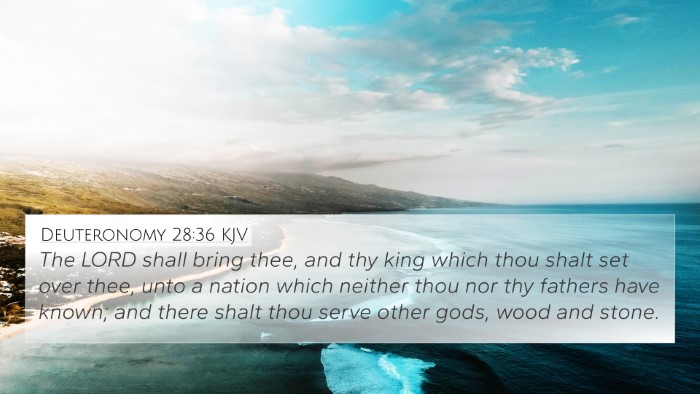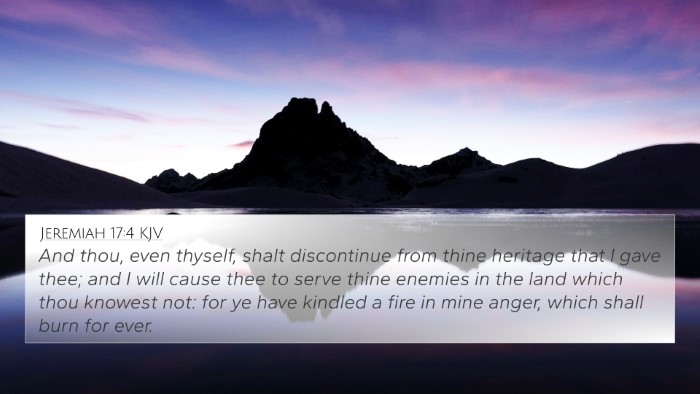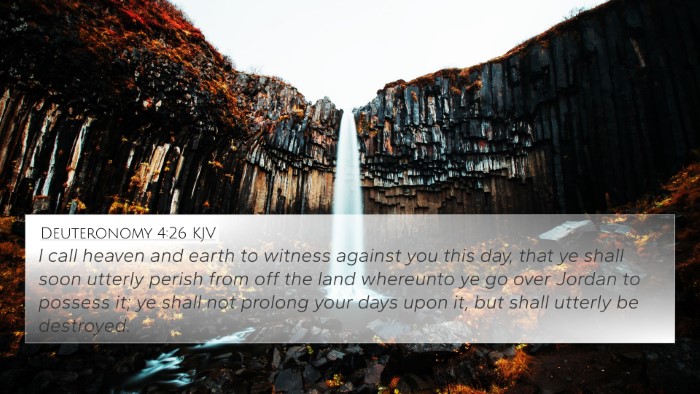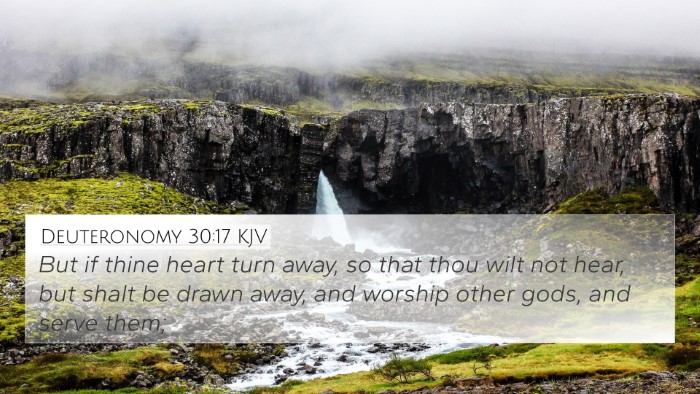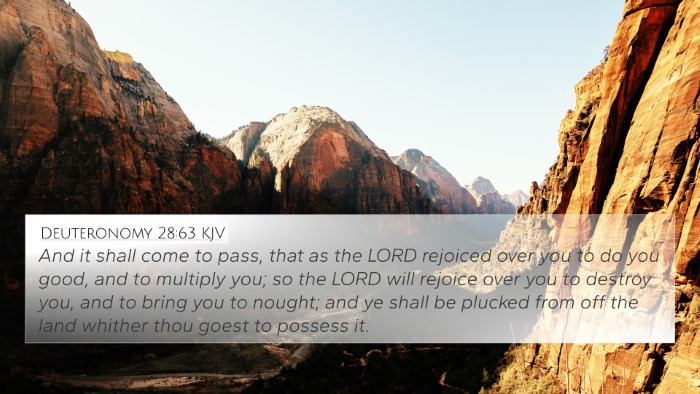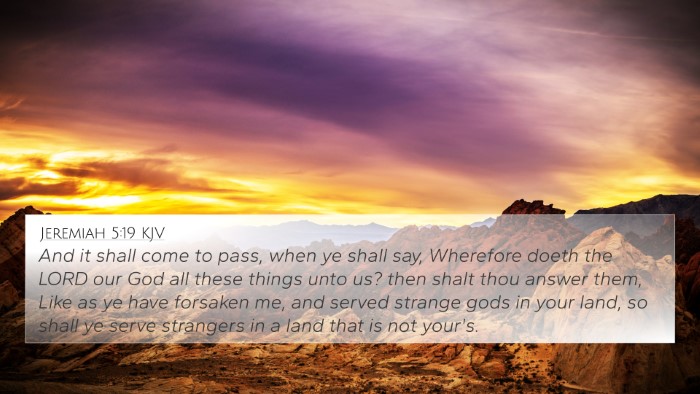Understanding Jeremiah 16:13
Jeremiah 16:13 states: "Therefore will I cast you out of this land into a land that ye know not, neither ye nor your fathers; and there shall ye serve other gods day and night: where I will not show you favor." This verse captures a moment of divine judgment and prophetic warning concerning the Israelites' disobedience.
Contextual Background
This verse falls within a series of prophetic declarations made by Jeremiah, who was known as the weeping prophet due to the burden of his message for a rebellious and unrepentant people. The context of this passage illustrates God's disapproval of the idolatry and turning away from His commandments by the Israelites.
Commentary Insights
Matthew Henry Commentary
According to Matthew Henry, this verse signifies God's serious response to Israel's unfaithfulness. God's casting them out reflects not only loss of physical land but also separation from His presence and favor. The warning emphasizes the consequences of their actions, implying that in wandering from God, they would not find His mercy or guidance in a foreign land.
Albert Barnes Commentary
Albert Barnes elaborates that the "land that ye know not" points to a complete dislocation from their familiar existence. The transition symbolizes a profound spiritual and social crisis. This verse highlights the relationship between sin and judgment, exemplifying God’s reluctance to extend favor to those continuously rebelling against Him.
Adam Clarke Commentary
Adam Clarke adds that the narrative illustrates the dire consequences that will follow Israel’s continuing sin. The phrase "serve other gods" reflects the futility and misery of idolatry, suggesting a stark contrast between servitude to false gods and the freedom found in worshiping the one true God. Clarke reminds readers that judgment should invoke a fear of God, compelling repentance.
Thematic Connections
Jeremiah 16:13 serves as a pivotal verse that connects with other scripture passages regarding judgment, idolatry, and divine discipline. Below are notable Bible cross-references related to this verse:
- Deuteronomy 28:36-37 - A warning of exile due to disobedience.
- 2 Kings 17:18 - Illustrates God's anger leading to exile.
- Psalms 106:40-43 - Describes God's wrath against His people for their idolatry.
- Ezekiel 12:14-16 - God’s commitment to scatter His people among the nations.
- Hosea 9:3 - Speaks of going into captivity and not dwelling in the Lord's land.
- Matthew 15:8-9 - Jesus quotes Isaiah, revealing the futility of worship that is not from the heart.
- Romans 1:21-23 - Connection to idolatry and the consequences of forsaking God's truth.
- Revelation 18:2 - The ultimate fall of the great city representing false worship.
- Isaiah 59:2 - Highlights sin as a separation between God and His people.
- Micah 4:10 - A foresight of exile and a call to lamentation.
Cross-Referencing Biblical Texts
The act of cross-referencing Biblical texts provides a deeper understanding of theological themes such as judgment, mercy, and idolatry. When studying Jeremiah 16:13 alongside these references, one can appreciate the full narrative arc of Israel’s journey through rebellion and the consequences faced as a nation.
Conclusion
In conclusion, Jeremiah 16:13 serves as an admonition of God’s justice in light of Israel's sins. The comprehensive reflections from various commentaries provide a multifaceted view of God’s character and His dealings with humanity. Through understanding the context and cross-references, believers can grasp the significance of remaining faithful to God's commands to avoid the warnings encapsulated in this passage.
Practical Applications
The insights derived from this verse and its related scriptures can encourage personal reflection on faithfulness to God. It encourages believers to:
- Regularly engage in Bible cross-reference guides to connect themes and teachings throughout scripture.
- Reflect on the consequences of turning away from God and the importance of repentance.
- Utilize tools for Bible cross-referencing to enhance understanding during study and sermon preparations.
- Identify and explore themes throughout both the Old and New Testaments to foster a holistic view of scripture.



